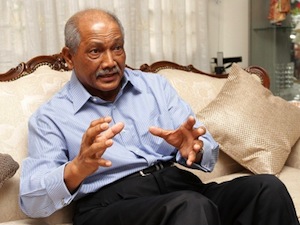Why former IGP Rahim Noor is against hudud
Former IGP Tan Sri Rahim Noor speaks his mind about hudud, the law and police jurisdiction – and stands ready to face any brickbats.
THE former Inspector-General of Police Tan Sri Rahim Noor has come out strongly against PAS president Datuk Seri Abdul Hadi Awang’s Private Members’ Bill to amend the Syariah Courts (Criminal Jurisdiction) Act.
He dismisses the notion that the Bill is merely to enhance the Syariah system. Instead he sees it as a “tactic” that PAS is using to push further for hudud (punishment under Islamic law).
In a plural society like Malaysia where non-Muslims make up about 40% of the population, Rahim fears such a move could fracture national integration and might even push Sabah and Sarawak to go their separate ways from peninsular Malaysia.
For him, all citizens should be dealt with equally under the law. “If the punishments in the (civil) criminal jurisprudence are not severe enough, what’s wrong with us enhancing the existing civil laws? There is no need for hudud,” he says.
The following is an interview with Rahim on May 31.
In 2002, after Terengganu passed its Hudud & Qisas enactment at the state assembly, the then IGP Tan Sri Norian Mai directed his officers not to implement that law.
How different would the responsibility of the police be if Hadi’s Private Members’ Bill now passes in Parliament?


